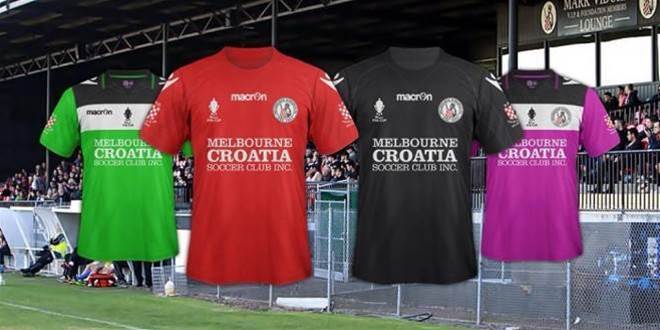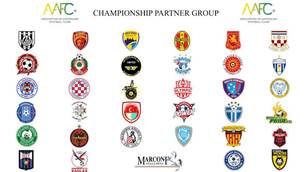Australia's traditional clubs today celebrated the official end of the FFA's hated National Club Identity Policy that tried to make clubs and players ashamed of their history.
As revealed by FTBL last week, FFA CEO David Gallop today confirmed the NCIP would now be replaced with a set of guidelines to allow clubs to celebrate their heritage and history without fear of being fined.
The previous rules led to clubs like Avondale FC taking to the pitch with black sticky tape over a tiny Italian flag on their shirt collar and Melbourne Knights being unable to have their Melbourne Croatia Social Club as front of shirt sponsors.
The repeal of the NCIP was one of the key targets for change after the boardroom coup last November - but was still causing issues even after the new board declared it was "dead".
Hamilton Azzurri was facing sanctions from state federation NNSWF over a shirt featuring a small Italian flag and the Ukrainian coat of arms...despite having had the same shirt for the last 18 months.
Now though, the new policy will bring an end to the division the policy created.
“Our clubs can now fully recognise their heritage and history," said Rabieh Krayem, President of the Association of Australian Football Clubs
"AAFC worked closely with two clubs in particular, Charlestown City Blues and Hamilton Azzurri, and they can now move on and celebrate their identity without worrying about a policy that previously prevented them from doing so.”
He added: “I would like to thank the FFA Board and management for their work in bringing together the new Inclusivity Principles for Club Identity.
"This has been a very thorough consultation process with AAFC happy to have played its part in reaching this positive conclusion.”

Gallop said the move was a positive step for the game.
“These new principles are not intended to be enforceable regulations," he said. "They are really about helping clubs be more inclusive and welcoming of people from all cultural backgrounds.
“Football in Australia has a rich and diverse history which FFA wishes to acknowledge and celebrate. Many clubs were formed and have developed from particular local communities who have made significant contributions to the growth and reputation of the sport of football as a whole.
“The way a club identifies itself to its community can have a significant impact on whether a person feels welcome and included at that club.
"Following extensive consultation with the football community and independent industry experts, FFA recommends that clubs embrace broad identities that are not tied to a single specific culture.
"Clubs that celebrate diversity, promote inclusion and make people feel like they belong regardless of their cultural background are more likely to succeed."
But he added: “At the same time, FFA understands the importance of clubs being able to respectfully recognise their heritage and the specific communities that were instrumental in establishing and developing them.
“So long as they are not offensive, each club in Australia is now free to register the name and logo of its choice, including by incorporating a cultural identifier.
“We believe the football community in Australia is committed to diversity and inclusion and we encourage all participants to embrace the new principles and continue to make football welcoming of people from all cultural backgrounds.”
Related Articles

‘Final model’: Major A-League second division meeting set for June

Lions ready for the future, and the fans are hopping on board















